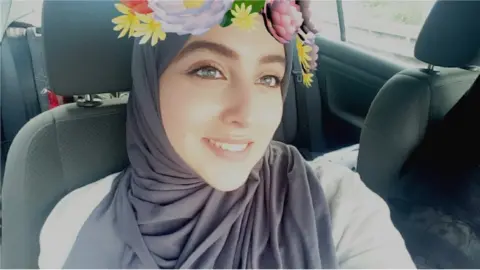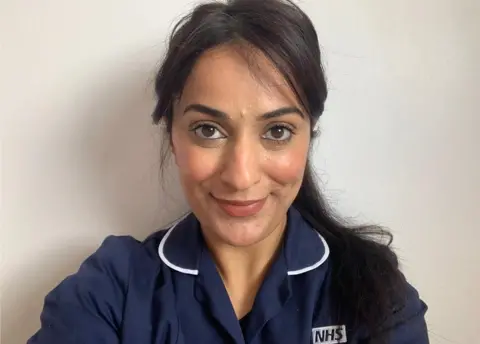Organ donation: 'Mum said we don't do it. So we don't'
"I always tell the story of when I was filling out my driver's licence," says 1Xtra's DJ Ace.
"I was 17. I was like, 'Mum, do I fill out this donor bit?' And she was like, 'no, we don't do that'.
"I just took that as gospel. My mum said we don't do it. So we don't do it. I never even questioned why. I don't think it's something that the black community do."
Ace needs a kidney transplant. He's been on the waiting list for two years.
But that's not that unusual for a black man.
In fact according to the NHS, black and Asian people have to wait, on average, a year longer than white people for a kidney transplant in England.
"I think for me, I have to get one this year," DJ Ace tells The Next Episode podcast.
"I've worked around it for long enough. For me in my heart, I'm confident that this year will be the year."
In May, Ace's hopes were given a boost.
A law change meant every adult in England automatically became a donor, unless they specifically said otherwise.
Before, people had to register to become an organ donor, now people have to register to say they don't want to be one.
It's hoped the change in the law, which is already in place in Wales, will save around 700 lives a year.
But people are opting out and a lot of them are black and Asian.
Kinzah is a 24-year-old Muslim and said she removed herself from the organ donation list because of the way she interprets her religion.
 Kinzah
Kinzah"We believe the body is an Amana, which is a trust.
"And by that we mean, the way we are born we are meant to go back to God.
"We are not allowed to give our organs away because that's breaking the trust that we've been given."
But Kinzah said she would take an organ if she needed one.
"This is my personal conscience debate."
Kinzah's decision to opt out of organ donation isn't unusual.
In fact since the law change in May, more than 167,000 people have removed themselves from the organ donation list.
According to NHS Blood and Transplant, at least 23% of them are black or Asian. That's higher than the 14.5% of the population they represent.
So, according to those NHS stats, black and Asian people are more likely than white people to have opted out of England's new organ donation law.
 Harpreet Matharu
Harpreet MatharuHarpreet Matharu is an organ donation specialist nurse from Birmingham.
"I just feel like they've got maybe the wrong message.
"A lot of people are thinking the government are taking control of peoples' organs. That is absolutely not the case."
Even with the law change a person's family still has the final say on whether a person's organs can be donated after they die.
Harpreet said she wants people to have those difficult conversations with family members, so it's clear to everyone what people want.
"Organs are matched with your tissue type and blood type.
"And that means people from the same ethnic background are likely to be a match."
"What a lot of the public don't realise is not everyone can be an organ donor. You have to die in a very specific way.
"You have to be on life support. So for example, if someone's been in a road traffic accident and they've had a head injury and it's the life support keeping them alive.
"That's why each donor is so precious."
Although Ace admits he hasn't really spoken properly to many of his friends about how they could potentially help him, he is feeling more confident of getting a donor.
"I've had a few people hit me on my DMs. Like, 'Yo, I'm really serious about this'.
"I know I'm blessed, but I know not everybody has that opportunity to have this platform, or have the job that I'm in to get that message out there.
"So I really do feel like it is a real responsibility for me that even after I get a kidney to keep campaigning for people to be organ donors."


